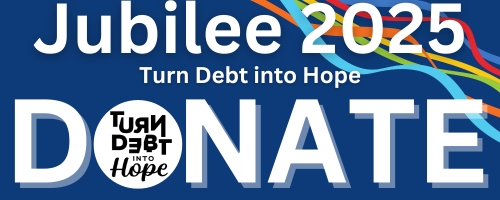In April 2016, Romeo Saganash, MP for Abitibi-Baie-James-Nunavik-Eeyou, introduced Bill C-262, an Act to ensure that the laws of Canada are in harmony with the United Nations Declaration on the Rights of Indigenous Peoples. On May 31, 2018, Bill C-262 passed third reading in the House of Commons. Unfortunately, the bill died on the Order Paper in the Senate due to delay tactics by a few senators during the Spring of 2019. Legislation based on the UN Declaration is critical for reconciliation in Canada.
Questions for Candidates:
- Will you commit to the implementation of the UN Declaration of the Rights of Indigenous Peoples in Canada by supporting a government bill as strong as Bill C-262?
- How do you plan to support local First Nation, Métis or Inuit communities?
- How will you create positive change for Indigenous communities?
- How do you plan to empower Indigenous peoples in Canada?
Background:
Few people are in greater need of human rights protection than Indigenous peoples. Globally, about 370 million Indigenous people face widespread systemic discrimination, impoverishment, ill health, and dispossession of their lands and resources. Although governments have a duty and responsibility to ensure the welfare and safety of all their citizens, Indigenous peoples are often subject to policies that erode or suppress their rights and distinct cultural identities. Canada is no exception.
Indigenous peoples are protected by existing international human rights instruments, in particular the United Nations Declaration on the Rights of Indigenous Peoples. Adopted by the UN General Assembly on September 13, 2007 after more than two decades of negotiations, the UN Declaration affirms the inherent or pre-existing collective human rights of Indigenous peoples, as well as the individual human rights of Indigenous women, men and children. It provides a framework for justice and reconciliation, applying existing human rights standards to the specific historical, cultural and social circumstances of Indigenous peoples.
In its preamble, the UN Declaration is described as “a standard of achievement to be pursued in a spirit of partnership and respect.” In Canada, it reinforces the Treaty relationships that exist between Indigenous peoples and the Crown and which form “the basis for a strengthened partnership….” The rights outlined in the UN Declaration “constitute the minimum standards for the survival, dignity and well-being of the indigenous peoples of the world” (Article 43).
Like other international human rights declarations, the UN Declaration provides an authoritative source of guidance for all societal institutions, including legislators and government departments, courts, human rights bodies, and public institutions such as universities. Unlike other declarations, however, the UN Declaration addresses collective rights to a degree unprecedented in international human rights law.
While Canada consistently ranks as one of the world’s top countries in which to live, according to the United Nations Human Development Index, when the same criteria is applied to Indigenous peoples in Canada, their rank drops to sixtieth or below – far, far behind their Canadian neighbours.
Canada’s Indigenous policy has been repeatedly criticized both internationally and nationally for violating Indigenous peoples’ rights. The federal 1986 Comprehensive Claims Policy, for example, is premised on the assimilation of Indigenous peoples through the extinguishment of their title and rights. This policy has been criticized by the United Nations, discredited by the landmark Royal Commission on Aboriginal Peoples, and cast aside by the Supreme Court of Canada in its 1997 Delgamuukw decision, which recognized the collective rights of Indigenous peoples. Yet the policy continues to influence land rights negotiations, and Canadian governments continue to disregard, limit, and terminate Indigenous rights, including land and Treaty rights.
The Government of Canada’s past and current dismissive and discriminatory approach toward Indigenous peoples was evident in its position on the UN Declaration. After opposing and campaigning against it for more than four years following its adoption by the UN General Assembly, the Canadian federal government finally and quietly issued an official, qualified statement of endorsement on November 2010, albeit with many reservations, ultimately calling it an “aspirational document.” The government’s main objections to the UN Declaration included provisions dealing with lands, territories and resources, and free, prior and informed consent.
In 2015, the Truth and Reconciliation Commission of Canada released its 94 Calls to Action. Number 43 calls upon calls “…federal, provincial, territorial and municipal governments to fully adopt and implement the United Nations Declaration on the Rights of Indigenous Peoples as the framework of reconciliation.”
In November 2015, in his mandate letters to ministers, Prime Minister Justin Trudeau asked the Minister of Indigenous and Northern Affairs, the Minister of Justice, and others to implement the UN Declaration in order to renew a nation-to-nation relationship between Canada and Indigenous peoples, “based on recognition, rights, respect, co-operation, and partnership.” In May 2016, the Minister of Indigenous and Northern Affairs announced Canada would remove its objector status to the UN Declaration and be a full supporter, without qualification. In November 2017, the Justice Minister announced that the Government of Canada would support Bill C-262, the private members bill, when it came up for second reading in the House of Commons. The government was criticized for waiting for a private member to introduce the bill, and not introducing it itself, which would have given the bill more clout.
In terms of consultation, the federal government committed $12.8 million in 2019-20 to Natural Resources Canada to “maintain capacity to conduct meaningful consultations” with Indigenous communities on major energy projects, while supporting economic participation. The government said that Indigenous voices must be included in project development, but did not include any funding in the budget to support their engagement in these consultations. A deeper investment is necessary to change the structures of consultation to ensure free, prior, and informed consent.
See the Ecological Justice section of this document for information on environmental racism.




